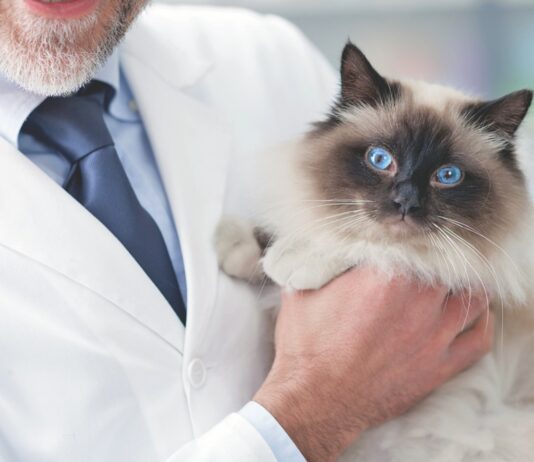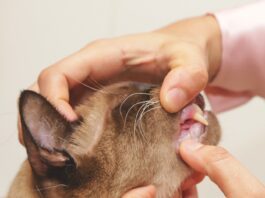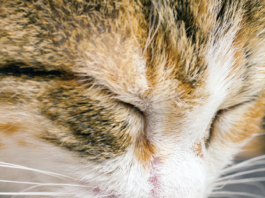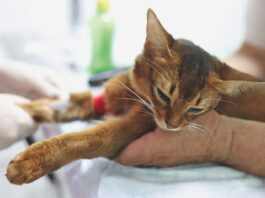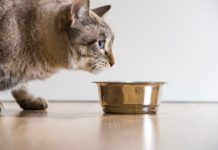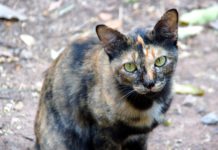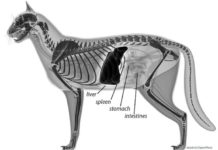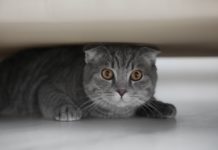Dolasetron Fails for Vomiting in Felines
Dolasetron (brand name Anzemet) has been used in people to help with chemotherapy-induced nausea. It inhibits vomiting and nausea via pathways in both the gastrointestnal tract and the central nervous system. This dual action made it sound helpful to cats, thought researchers in California. Their study was reported in the August 2018 Journal of Feline Medicine and Surgery.
New Feeding Guidelines Address Behavior
The American Association of Feline Practitioners (AAFP) recently released a consensus statement called Feline Feeding Programs: Addressing Behavioral Needs to Improve Feline Health and Wellbeing to address medical, social, and emotional problems that can result from the manner in which most cats are currently fed. It was published in the Journal of Feline Medicine and Surgery and transformed into a handout for cat owners.
Cats vs. Rats, Rats Are Winning
The first study to document interactions between feral cats and a wild rat colony finds that, contrary to popular opinion, cats are not good predators of rats.
Helping Stray Cats With Kittens
Few things tug more at our heart strings than a mother cat trying to care for her kittens in the wild. Whether or not you should intervene, though, depends on the relationship between the person and the stray queen, says Dr. Leni Kaplan, Lecturer in the Community Practice Service at the Cornell University College of Veterinary Medicine. Do not handle a cat that you are not familiar with. As rabies vaccination status for stray cats is unknown, the person must first and foremost protect themselves from scratches or bites from these cats.
On the Alert for Liver Problems
The liver is one of the busiest organs in your cats body and is a real multitasker. While it does have amazing regenerative powers, once 75 percent of the healthy tissue is gone, clinical signs of illness usually will start to appear. By then it can be too late for treatment to help beyond palliative measures, so be alert for early signs.
The Cornerstone of Bloodwork
It requires just a little blood, but the CBC, or complete blood count, can reveal important information about your cats health. Its usually part of a senior wellness panel, diagnostic bloodwork for an ill cat, and as part of a pre-operative workup. It may also be used to evaluate your cats response to a medication or its possible side effects.
Cat-Friendly Veterinary Hospitals
My 10-year-old female domestic short-haired cat has always been very nervous when I bring her to the veterinarian, to the point that her stress makes me hesitant to bring her for her regular check-ups. A friend of mine recently told me about veterinary practices that specialize in being cat-friendly, and I am hopeful that going to such a practice may make things easier on my girl. Can you tell me a bit about these practices, and where I can find one?
Oh No! Did You Really Eat That?
We cant watch our cats all the time nor can we predict with any degree of certainty what trouble they may seek out. Sometimes, you may not even realize that your cat ate something bad for him. You just have to be on the alert for signs of poisoning:
No More Compounded Mirtazapine Ointment
Compounded drugs are medications where bulk ingredients are mixed together by a pharmacist, as opposed to a commercial drug that is approved by the Food & Drug Administration (FDA) and manufactured under the FDAs monitoring. When an FDA-approved drug becomes available, the FDA forbids the same medication to be compounded. This is the case with Mirataz (mirtazapine transdermal ointment), which is applied to the inner surface of a cats ear to manage undesired weight loss.
Rehoming and Asthma
A study from the Nationwide Childrens Hospital analyzed environmental exposures, like pets and secondhand smoke, to determine if they have a role in asthma control among children whose asthma is managed per National Asthma Education and Prevention Program (NAEPP) guidelines. Researchers found that, once asthma guidelines are followed, environmental exposures were not significant factors in overall asthma improvement over time.
Feline Parasite May Jump-Start New Businesses
Medical News Today reported that a new study found that an infection with the cat-borne parasite Toxoplasma gondii makes people more risk-prone and likely to start a business. T. gondii, a protozoan parasite that infects 2 billion people a year, is found in domestic and wild cats. The Centers for Disease Control and Prevention say 11 percent of the U.S. population over the age of 6 may be infected.
Heartworm in Cats
Centragard (eprinomectin and praziquantel transdermal solution) was approved by the FDA in April and is now on the market. This drug is used to prevent heartworm disease caused by Dirofilaria immitis, which is spread through the bite of mosquitoes. It is applied monthly. Centragard is also approved for the treatment and control of roundworms, hookworms, and tapeworms in cats and kittens 7 weeks of age and older and weighing at least 1.8 lb.

